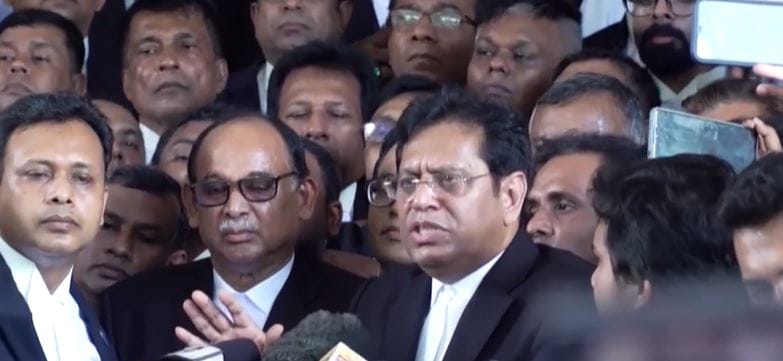Dhaka’s Decree Decimates Divisive Quotas
In a landmark verdict, Bangladesh’s Supreme Court has abolished the majority of government job quotas, a move aimed at quelling the violent protests that have recently engulfed the nation. The demonstrations, initially led by students, escalated into widespread unrest, resulting in the tragic loss of at least 139 lives. This decision overturns a previous ruling by a lower court and mandates that a staggering 93% of government positions be awarded based on merit, as confirmed by Attorney General A.M. Amin Uddin.
Protests Persist Despite Promising Progress
Despite the court’s decisive action, some protest organizers have vowed to continue their demonstrations until their demands are fully met. These demands include the release of detained student leaders and the restoration of internet and cellular services, which were suspended as part of the government’s crackdown on the unrest. The government had previously scrapped the quota system in 2018, only for a lower court to reinstate it last month, igniting the recent wave of protests.
Path to Peace Paved with Uncertainty
While the court’s ruling represents a significant step towards restoring order, the path to peace remains uncertain. The streets of Dhaka, the capital, are patrolled by soldiers, and a curfew imposed by the government remains in effect. Scattered clashes between protesters and security forces continue to be reported, and the death toll continues to rise. The government has extended the curfew indefinitely, raising concerns about the potential for further unrest.
Summary:
The Bangladesh Supreme Court’s decision to scrap most government job quotas is a pivotal moment in the nation’s ongoing struggle with violent protests. While the ruling offers a glimmer of hope for peace, the situation remains precarious, with protesters demanding further concessions and the government struggling to maintain control. The outcome of this crisis will undoubtedly shape the future of Bangladesh for years to come.
Key Learnings:
| Point | Description |
|---|---|
| Supreme Court abolishes most job quotas | A landmark ruling aims to address the root cause of the protests. |
| Protests continue despite court decision | Organizers demand the release of detainees and restoration of internet services. |
| Government struggles to maintain control | Curfew remains in effect, and clashes between protesters and security forces continue. |
| Outcome of the crisis will shape Bangladesh’s future | The situation remains fluid, and the long-term consequences of the unrest are yet to be seen. |
| The court’s decision is a significant step towards restoring order | It remains to be seen whether it will be enough to quell the protests and pave the way for lasting peace. |
Export to Sheets
Soumya Smruti Sahoo is a seasoned journalist with extensive experience in both international and Indian news writing. With a sharp analytical mind and a dedication to uncovering the truth, Soumya has built a reputation for delivering in-depth, well-researched articles that provide readers with a clear understanding of complex global and domestic issues. Her work reflects a deep commitment to journalistic integrity, making her a trusted source for accurate and insightful news coverage.



